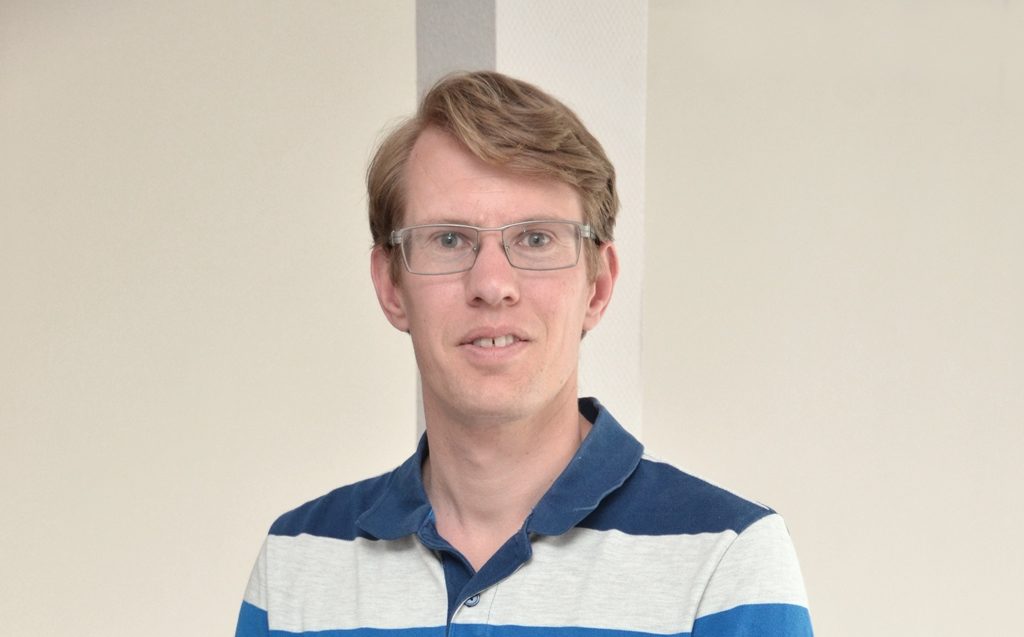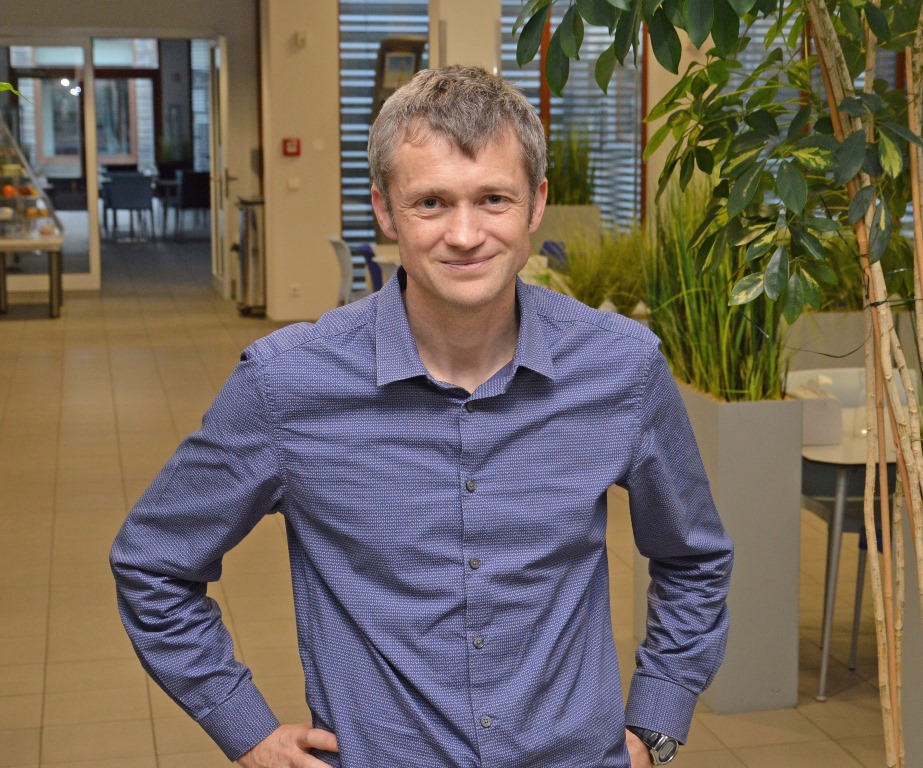Introducing
WAVE: Water and vegetation in a changing environment
Duration: 1 August 2017 – 31 July 2022
FNR contribution: 1.7 MEUR (ATTRACT Consolidator)
Institution: Luxembourg Institute of Science and Technology (LIST)
Project summary
The WAVE project aims to improve our understanding of the interactions between vegetation, soil and the atmosphere, in order to enable better predictions of some of the consequences of land use and environmental change for both ecosystem services and water resources.
WAVE aims to advance ecohydrological understanding and modelling in three directions,
(a) by improving quantitative representation of physical constraints on the functioning of plants through targeted lab and field experiments;
(b) by developing a community-based model evaluation framework enabling the hydrological community to progressively build on each others’ modelling efforts and rigorously evaluate models against cutting edge observational data; and
(c) by implementing physical constraints and optimality hypotheses in models at different scales and testing them against observations in a consistent and transparent way.
The group consists of 3 PhD candidates, investigating canopy-air exchange, root uptake and plant water transport processes respectively, a postdoctoral fellow focusing on ecohydrological model development and testing, two part-time lab engineers and the project leader. To reach our aims, we combine targeted development of cutting edge technology and experimental setups with laboratory and field observations, and physically-based computational modelling, building strongly on the expertise of our national and international collaborators in Germany, Switzerland, Australia, the US and other countries. In all our activities, we follow an Open Science approach, exploring and developing software solutions to make our research available and reproducible from the generation of raw data to figures and scientific publications.
Group leader
Dr Stan Schymanski

I was born in Poland (1974) and grew up in Frankfurt (Germany) after my family left Poland in 1980. After high school, I studied Biology in Darmstadt and Freiburg, followed by a short research project at the FVA Baden-Württemberg in Freiburg. In 2002, I moved to Australia for a PhD in Environmental Engineering. In 2007, I took on a scientist position at the Max-Planck-Institute for Biogeochemistry in Jena (Germany), where I focused on ecohydrological modelling and thermodynamics. In 2011, I took on another temporal scientist position in Switzerland, at ETH Zurich, Soil and Terrestrial Environmental Physics. I transferred to the Swiss Data Science Center within ETH in 2017, 6 months before starting my current position in Luxembourg as Lead R&T Associate and FNR ATTRACT-fellow at LIST on 1 August 2017.
The hidden behaviours of plants | Stan Schymanski | TEDxUniversityofLuxembourg
Group members

Remko Nijzink, postdoctoral fellow
After finishing my masters in civil engineering in the Netherlands, in 2013, I had the opportunity to do a PhD in hydrology. I worked on hydrological models and how we could reduce the need for calibration (deriving model parameters with observations), with for example remotely sensed data. This was part of a European project focusing on open data and collaborative science, where I worked with many different partners. I joined the WAVE-team as a postdoc in May 2018 and hope we can achieve some interesting scientific work together!
In WAVE, I primarily work on modeling of water and vegetation. I am currently extending and evaluating the Vegetation Optimality Model (VOM), which optimises different vegetation properties (rooting depth, tree cover etc.) to maximize the net carbon profit (total carbon uptake minus all maintenance and turnover costs). The promise of the optimality approach is to reduce the need for input data and calibration while enabling robust predictions about vegetation response to changing conditions. I currently focus on the following research questions:
– How can optimality explain vegetation behavior along different study sites with different climatological and hydrological characteristics?
– What is the effect of changing conditions (e.g. rising CO2-levels) on the optimal vegetation dynamics and the resulting feedbacks with the atmosphere?
I also explore approaches to make all the science completely reproducible and repeatable, mainly by using the platform RENKU, developed by the Swiss Data Science Center. All steps in the scientific workflow are tracked in this way, in order to generate a complete knowledge tree of all elements needed to reproduce a given set of results. Eventually, I hope that this open science approach will help us advance our understanding of vegetation dynamics and optimality.

Gitanjali Thakur, PhD candidate
My first research experience began in 2011 during my undergraduate studies when I was awarded a research internship for a project entitled “Porous media characterization using electrical impedance” by the Indian Institute of Technology (IIT), Bombay. After thoroughly analyzing my research interests, I obtained a Master degree in Environmental Engineering from the University College Dublin. My master’s research focused on the assessment of roof-top wind resources for micro-wind-turbine placement in Dublin’s suburbs. Currently, I am pursuing my PhD as a part of the WAVE project at LIST. My long-term goal is to have a career in research and contribute towards land-based mitigation strategies for climate change.
The title of my PhD project is “Physical and biological control of leaf-canopy gas and energy exchange”. The project aims to improve our understanding of interactions between vegetation and its micro-climate at the leaf and canopy scale. The leaf-air interface will be investigated under varying environmental conditions and plant (biological) control of carbon and water exchange will be evaluated. As the outcome of the project, a physically consistent gas and energy exchange model will be formulated, which will enable better predictions of some of the consequences of land-use and environmental change for both ecosystem services and water resources.

Emmanuella Onyinyechi Osuebi-Iyke, PhD candidate
I was born in Nigeria where I completed my B Sc. degree in plant science and biotechnology from the University of Nigeria, Nsukka. I proceeded to Germany where I obtained a master of science degree at the University of Trier in environmental Sciences with a focus in Geobotany. My research interests include plant physiology, plant interactions and functional ecology.
My PhD project, “Energetic trade-offs related to water and nutrient uptake”, focuses on quantifying the costs and benefits of plant roots in terms of their effectiveness in water and nutrient uptake vs. the carbon invested in the root system. The project seeks to generalize the process of plant water and nutrient uptake as a cost-benefit driven optimization process rather than examining species-specific root attributes. This may help to reproduce general patterns of below-ground C allocation and improve models of plant uptake by including the C costs of these processes.

Louis Krieger, PhD candidate
I obtained my B.S. and M.S. degree in Chemical Engineering from Miami University in Ohio, USA in May 2019. My master’s thesis project was focused on color-accurate 3D printing of pressure ulcers. These 3D models would then be used in nursing courses as learning aids for the subject. This was my first big project I took on in research and it was difficult. Once I was done I was relieved, but I also wanted to start another research project almost right away.
My PhD project in the group revolves around quantifying the carbon cost and benefits of water transport in the xylem going from the roots to the leaves. This will involve describing how water is transported up to the leaves in a thermodynamically systematic manner. I will also be looking at how the physiology changes the efficiency of the process. One example would be assessing the effect of temperature on water transport capacity. With the information it will be possible to determine how certain plants will react in a changing climate.
Another key aspect of my research will involve investigating the importance of tissue water storage as buffer for pressure drops and peak water demand, where the observations center around how the plant stores water and the energy costs behind it.

Oliver O’Nagy, lab engineer
I am a mechanical engineer with specialisation in prototyping of sensor technology, measurement facilities, data acquisition and data treatment. Born in Dillingen/Saar, Germany in 1970, I grew up in a very industrial environment (steel factory, automotive industry). After my educational training as car mechanic, I studied mechanical engineering at the University of Applied Sciences in Trier, Germany. During my studies I finally became aware that our world can’t tolerate more environmental pollution (mainly caused by the work of engineers), if we want to preserve human life on earth, but more likely a sustainable use of resources (energy and materials). Especially the use of renewables (mainly solar energy) became one of the most important drivers to focus my work in improvement of the knowledge about renewable resources.
In the WAVE project I’m supporting the team in the realisation of their measurement tasks, the construction of new sensors and devices.

Frank Minette, senior engineer
After my engineering studies in applied informatics and mechatronics, I started my career in 1988 at the Public Research Centre Henri Tudor as a R&D Engineer. In 2006, in charge of the Mechatronic Unit (mechanics and electronics), I changed from the Laboratory for Industrial Technologies (LTI) of Henri Tudor to its Resource Centre for Environmental Technologies (CRTE) as Unit manager of the Energy group. Since the merger of the two CRP’s into LIST, beginning of 2015, I have been a Senior Engineer in the Observatory for Climate and Environment (OCE) of the Environmental Research and Technology Platform (ERTP) in the Environment Research and Innovation department (ERIN). I am involved in the development of new sensors and devices, adapting and/or modifying the electronics of field measuring devices for for highly specialised or complex functionality.
With my more than 30 years of experience, I support the entire exciting WAVE team in the development of innovative technologies and experimental setups in the laboratory and/or for field observations.

Output
Selected publications
Drake, P. L., Boer, H. J. de, Schymanski, S. J. and Veneklaas, E. J.: Two sides to every leaf: water and CO2 transport in hypostomatous and amphistomatous leaves, New Phytologist, 222(3), 1179–1187, doi:10.1111/nph.15652, 2019.
Franklin, O., Harrison, S. P., Dewar, R., Farrior, C. E., Brännström, Å., Dieckmann, U., Pietsch, S., Falster, D., Cramer, W., Loreau, M., Wang, H., Mäkelä, A., Rebel, K. T., Meron, E., Schymanski, S. J., Rovenskaya, E., Stocker, B. D., Zaehle, S., Manzoni, S., Oijen, M. van, Wright, I. J., Ciais, P., Bodegom, P. M. van, Peñuelas, J., Hofhansl, F., Terrer, C., Soudzilovskaia, N. A., Midgley, G. and Prentice, I. C.: Organizing principles for vegetation dynamics, Nat. Plants, 6(5), 444–453, https://doi.org/10.1038/s41477-020-0655-x, 2020.
Tague, C. L., Papuga, S. A., Gerlein‐Safdi, C., Dymond, S., Morrison, R. R., Boyer, E. W., Riveros‐Iregui, D., Agee, E., Arora, B., Dialynas, Y. G., Hansen, A., Krause, S., Kuppel, S., Loheide, S. P., Schymanski, S. J. and Zipper, S. C.: Adding our leaves: A community-wide perspective on research directions in ecohydrology, Hydrological Processes, 34(7), 1665–1673, https://doi.org/10.1002/hyp.13693, 2020.
More information
WAVE institutional web site
https://www.list.lu/en/research/project/wave/
WAVE slides and posters
https://zenodo.org/communities/wave/
Links to external collaborators:
https://datascience.ch
https://stineb.github.io/mind
WAVE in the www:
https://www.science.lu/de/fnr-attract-fellow-stan-schymanski/mit-einem-blattmodell-auswirkungen-des-klimawandels-vorhersagen
https://www.science.lu/fr/fnr-attract-fellow-stan-schymanski/predire-les-consequences-du-changement-climatique-grace-une-feuille-modelisee
WAVE-members in the media and www:
Stan:
https://www.rtl.lu/news/national/a/1272804.html
https://www.aguecohydrology.org/blog-adding-our-leaves/meet-a-leaf-stan-schymanski https://www.facebook.com/uni.lu/videos/2207118852727400/
Remko:
https://archive.fnr.lu/research-with-impact-fnr-highlight/spotlight-remko-nijzink/
Projects
ESSM-Software package
Documentation: https://essm.rtfd.io/
Code: https://github.com/environmentalscience/essm
Examples: https://github.com/schymans/ESSM_jupyter_examples
CHEF: Community Hypothesis Evaluation Framework
https://presentations.copernicus.org/EGU2019-16125_presentation.pdf
https://doi.org/10.5281/zenodo.3274346
RENKU 連句
A software platform for reproducible and collaborative data science.


